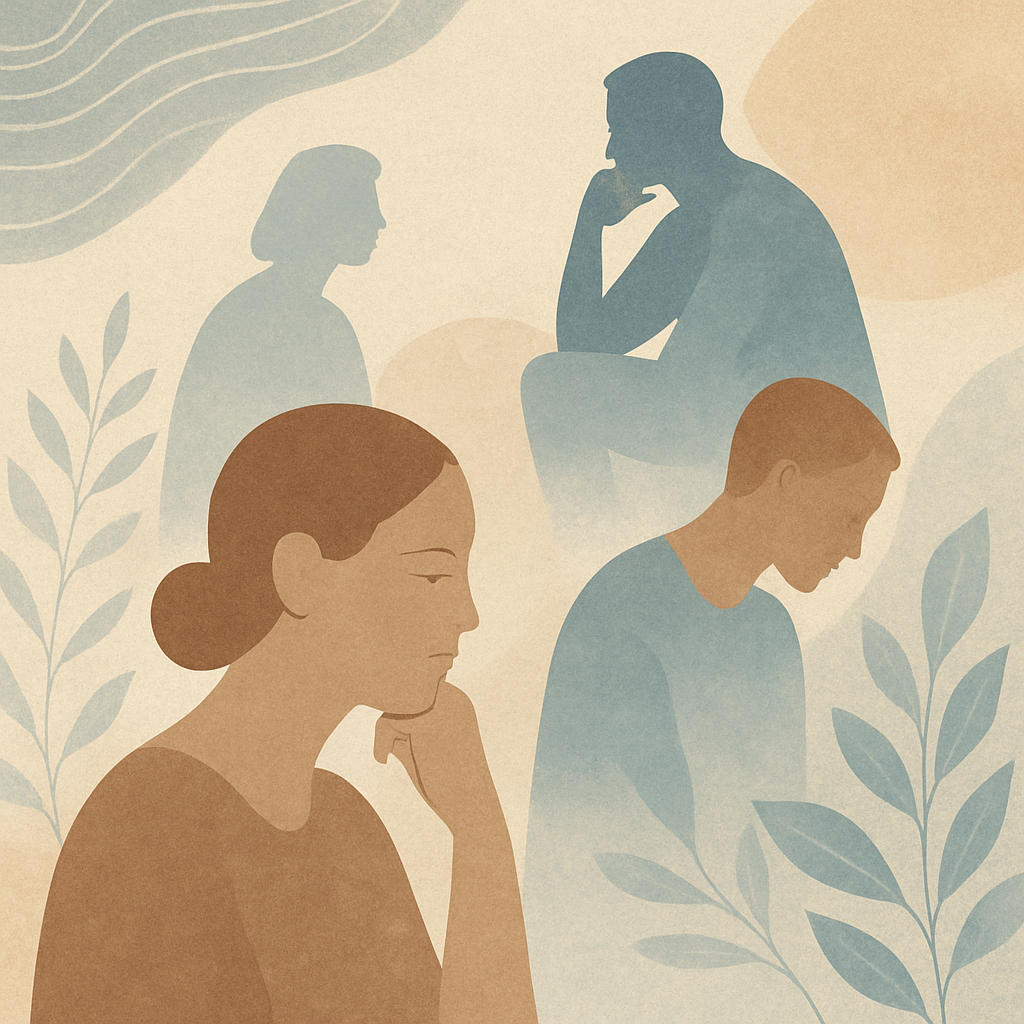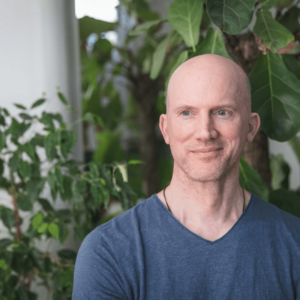At Khiron Clinics, we believe that all trauma healing stories are a reminder that recovery is possible, even after profound emotional pain. These stories of trauma offer more than inspiration—they reflect real paths of progress made by individuals navigating difficult past experiences. By sharing each recovery story and personal account of growth and resilience, we hope to offer support, education, and encouragement to others on their journey.
Trauma Healing at Khiron Clinics: A Grounded and Compassionate Approach
Trauma recovery begins with understanding. At Khiron Clinics, our work is rooted in evidence-based practices and deep empathy for each person’s lived experience. We recognise that trauma impacts the body and mind, often disconnecting people from a sense of safety or control.
Our therapeutic model is grounded in Polyvagal Theory, recognising how the nervous system responds to threat and safety. This understanding informs every aspect of care, allowing us to support individuals in rebuilding trust in their bodily cues and emotional responses. All members of our multidisciplinary team are trained in this approach, creating a consistently attuned environment where even day-to-day interactions become opportunities for regulation, connection, and healing.
We combine psychological therapies with body-based methods, such as mindful movement, breathwork, and nervous system regulation techniques. This balance of approaches supports emotional regulation and body awareness—two essential elements of long-term recovery.
Our environment is also carefully structured to reinforce this approach. Quiet spaces, consistent routines, and warm interpersonal support create a foundation where people can begin to feel safe again. These conditions are not accidental; they are integral to the recovery process, and they shape the atmosphere across our entire clinic.
The Role of Polyvagal-Informed Care in Recovery
Khiron Clinics is the first Polyvagal-Informed certified residential clinic in the world. Polyvagal-informed care is not just a concept at Khiron Clinics—it is a daily practice. Dr Stephen Porges’ work provides a framework for understanding how trauma affects the nervous system, which shapes how survivors respond to everyday challenges.
Our clinicians are trained to notice subtle signs of distress or regulation. A shift in posture, a pause in speech, or a breath pattern change can offer insight into how safe a person feels. Rather than pushing individuals to speak before they are ready, we honour their pace, offering tools for grounding and co-regulation.
Through this process, clients begin to reframe their symptoms. What may once have felt like weakness or disconnection becomes understandable as a biological response to overwhelming circumstances. This shift reduces shame and allows room for self-compassion.
Clients are also supported in developing practical skills to support their own healing. These include sensory-based grounding, journalling, emotional tracking, and movement. Over time, such skills become part of daily life, allowing recovery to continue beyond the clinic setting.
Real Trauma Healing Stories of Growth: How Human Connection Supports Recovery
The stories shared by our clients reflect the diversity of trauma experiences—and the resilience of those working through them. Many arrive with deep wounds from childhood or adult trauma, feeling disconnected or unsure whether healing is even possible. Through therapeutic relationships built on trust and consistency, they begin to feel seen and valued.
In our Client Testimonials, one client shares that simply being met with kindness—without pressure to talk—was the first moment they felt safe in years. Another described how learning about their own nervous system gave them a new perspective on long-standing emotional patterns. These shifts, though subtle, mark significant turning points in recovery.
Support plays a vital role in this process. In individual therapy, clients gain tools and insight tailored to their needs. In group settings, they experience shared understanding and peer validation. These interactions can reduce feelings of isolation and offer encouragement at moments when progress feels slow.
The Power of Safe Environments in Trauma Recovery
Safety is a prerequisite for trauma recovery. Without it, healing cannot take root. That’s why Khiron Clinics is designed to be a space where clients feel physically, emotionally, and psychologically secure. This involves more than just quiet rooms—it requires a staff trained to recognise and respond to signs of distress with calm and attunement.
Small, consistent actions help to reinforce a sense of safety—a friendly greeting, a predictable schedule, or a space to retreat when overwhelmed. Over time, clients begin to respond differently to both internal sensations and external situations, discovering that they no longer need to stay in survival mode.
This shift is often gradual. A person may first notice that they are sleeping better, experiencing fewer flashbacks, or feeling more present in conversations. These small changes matter—they build confidence and signal that healing is already underway.
We also encourage the inclusion of family or friends, where appropriate. Support does not only come from within the clinic walls. When clients feel safe enough to share their process with trusted others, recovery can deepen and become more sustainable. We also help individuals explore survivor resources that may be helpful outside of the clinic, from peer-led initiatives to trusted mental health support lines.
Healing from Childhood Trauma: Building New Patterns
Childhood trauma often influences how individuals relate to others, process emotions, and understand themselves. Healing from these early wounds involves dedicated trauma work—reworking patterns that may have developed over many years. For many, the roots of trauma stem from abuse experienced as a child. This can impact not only the individual, but also how they engage with parents and families later in life.
At Khiron Clinics, we understand that this type of healing takes time, care, and gentle support. Many survivors begin by voicing painful memories that were never previously shared. Our clinicians are trained to listen with patience, providing structure without rushing or overwhelming the process.
Understanding the nervous system plays a significant role here. When people realise that their emotional reactions stem from early survival strategies, they can stop blaming themselves for difficulties that are not their fault. This clarity can be deeply freeing.
Therapies such as somatic experiencing help clients reconnect with themselves and their emotions. Body-based approaches are not only effective but also accessible, allowing clients to engage at a level that feels safe for them.
Clients often describe a shift from feeling reactive to feeling grounded. They begin to notice the space between stimulus and response. They learn to identify triggers and apply healthy coping mechanisms developed during their sessions, replacing old responses rooted in fear with new strategies grounded in safety. Over time, this leads to a more stable sense of self and an increased ability to engage with life.
Community Healing: The Role of Support Networks
No trauma healing story is written alone. Community plays a fundamental role in recovery. Whether through group therapy, peer support, or shared learning, trauma survivors often gain strength by connecting with others who understand what they are going through.
At Khiron Clinics, we facilitate these connections carefully. Group sessions provide a space where clients can share their experiences and listen to others without judgement. These moments often carry deep emotional weight, offering insight and encouragement that one-to-one work cannot always provide.
Hearing others speak openly about their own healing can reduce shame and normalise the ups and downs of the process. It reminds clients that recovery is not about perfection, but about showing up—day after day—and making choices that support wellbeing.
We also recognise the importance of support outside formal therapy. Trusted friends, partners, and extended networks can be allies in healing, offering consistency and care. Where needed, our clinicians help clients identify and strengthen these connections, so they feel better supported in everyday life. These connections often go beyond individual experiences and contribute to a larger sense of collective healing—where shared understanding and empathy help transform pain into connection.
Looking Ahead in Mental Health Care: Your Trauma Story Matters
If you have experienced trauma and are wondering whether recovery is possible, we want you to know that you are not alone. At Khiron Clinics, every story is treated with care and dignity, we understand the stress of mental health crisis. We work alongside you to build safety, understanding, and meaningful progress—at your pace.
Our trauma-informed approach, grounded in the latest research and clinical expertise, offers a path forward rooted in compassion and connection. Through shared stories, professional care, and supportive environments, recovery becomes not just possible but deeply meaningful.
If you would like to learn more or speak with someone about your own healing process, we invite you to get in touch. Whether you’re taking your first step or continuing your journey, we are here to support you with resources, professional care, and a deep respect for your mental health.






